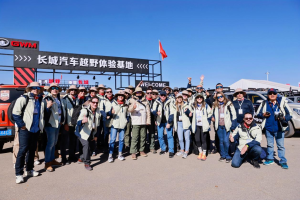 Rebel fire hit two U.S. military aircraft responding to the outbreak in violence in South Sudan on Saturday, wounding three U.S. service members and heavily damaging at least one of the aircraft, officials said. South Sudan blamed the attack on renegade troops in control of the breakaway region.
Rebel fire hit two U.S. military aircraft responding to the outbreak in violence in South Sudan on Saturday, wounding three U.S. service members and heavily damaging at least one of the aircraft, officials said. South Sudan blamed the attack on renegade troops in control of the breakaway region.
The U.S. military aircraft were heading to Bor, the capital of the state of Jonglei and scene of some of the nation’s worst violence over the last week. One American service member was reported to be in critical condition. Officials said after the aircraft took incoming fire, they turned around and headed to Kampala, Uganda. From there the service members were flown on to Nairobi, Kenya for medical treatment, the officials said.
Both officials demanded anonymity to share information not yet made public. Both officials work in East Africa and are in a position to know the information. It was not immediately known what the U.S. aircraft were doing in Bor. One official said it appeared the aircraft were Ospreys, the type of aircraft that can fly like a helicopter and a plane.
Officials at the U.S. military’s Africa Command did not immediately answer phone calls or emails on Saturday.
South Sudan’s military spokesman, Col. Philip Aguer, said that government troops are not in control of Bor, so the attack on the U.S. aircraft has to be blamed on renegade soldiers, he said.
“Bor is under the control of the forces of Riek Machar,” Aguer said.
South Sudan President Kiir, an ethnic Dinka, said this week that an attempted coup triggered the violence now pulsing through South Sudan. He blamed the former vice president, Machar, an ethnic Nuer. But officials have since said a fight between Dinka and Nuer members of the presidential guard triggered the initial violence late Sunday night. Machar’s ouster from the country’s No. 2 political position earlier this year had stoked ethnic tensions.
The violence has killed hundreds and has world leaders worried that a full-blown civil war could ignite in South Sudan. The south fought a decades-long war with Sudan before a 2005 peace deal resulted in a 2011 referendum that saw South Sudan break away from the north, taking most of the region’s oil wealth with it.
An International Crisis Group expert on South Sudan told The Associated Press on Friday that rebels have taken control of at least some of South Sudan’s oil fields, an issue that could bring Sudan into the conflict. South Sudan’s oil flows north through Sudan’s pipelines, providing Khartoum with much needed income.
The U.N. Security Council on Friday said the weeklong violence resulted from a “political dispute among the country’s political leaders” that could affect not only South Sudan, but neighboring countries and the entire region.
U.S. President Barack Obama earlier this week dispatched U.S. troops to help protect the U.S. Embassy in the capital, Juba. The U.S. Embassy organized at least five emergency evacuation flights to help U.S. citizens leave the country. Other countries like Britain, Germany and Italy also helped citizens evacuate.




